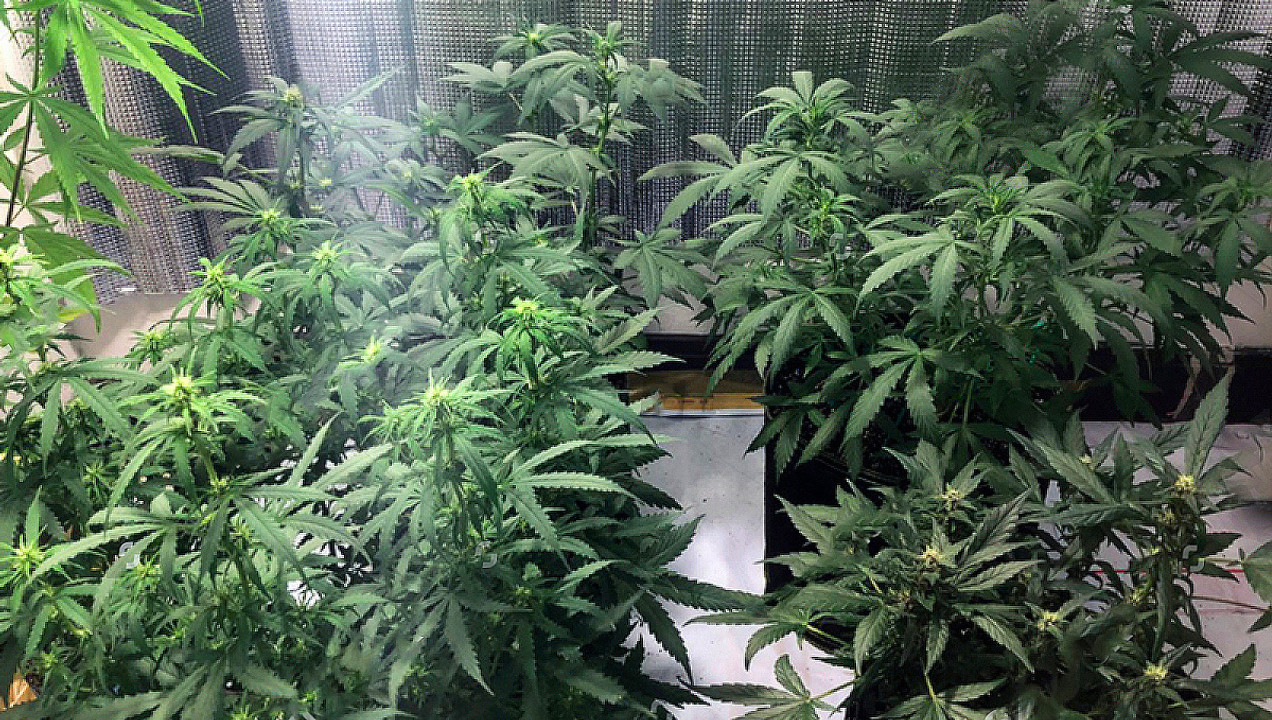The Science of Growing THCA Flower: Cultivation Secrets for Potency | Green Health Delivery
Unveiling the Green Horizon: The Science Behind Cultivating Premium THCA Flower
At Green Health Delivery, we're dedicated to bringing the future of wellness directly to your doorstep, whether you're in Orlando, FL enjoying our same-day delivery or anywhere across the nation with our reliable shipping. Today, we're pulling back the curtain on the incredible science that goes into cultivating the high-quality THCA flower you love. It's a journey deep into plant physiology, genetic precision, and environmental mastery.
Many are curious about THCA (Tetrahydrocannabinolic Acid), the non-intoxicating precursor to Delta-9 THC, found abundantly in live, raw cannabis and hemp plants. Understanding how this compound is nurtured and maximized in the plant is key to unlocking its full potential.
The Intricate Dance of Cannabinoid Biosynthesis: A Cultivator's Challenge
One aspect of hemp plant physiology that is particularly challenging for cultivators to truly master is the precise regulation and complex interplay of cannabinoid biosynthesis pathways in response to environmental factors and genetic variations. It's a delicate balance that determines the final potency and profile of the flower.
What makes this area so complex for growers and plant scientists?
-
Multi-Gene, Multi-Enzyme Pathways: The journey from basic plant compounds to cannabinoids like THCA, CBDA, CBGA, and the myriad of minor cannabinoids involves a cascade of biochemical reactions. Each step is carefully orchestrated by specific enzymes, known as synthases. These enzymes are encoded by multiple genes, and variations in gene copies or even slightly different forms of these genes can profoundly alter the cannabinoid output. Understanding how this intricate genetic and enzymatic machinery interacts and is regulated within the plant is a monumental task.
-
Environmental Influences (Phenotypic Plasticity): While a plant's genetics lay down the blueprint for which cannabinoids it can produce, its environment profoundly dictates how much and in what ratios those cannabinoids are actually expressed. This adaptability, known as phenotypic plasticity, is a constant consideration for growers:
-
Light (Intensity, Spectrum, Photoperiod): The amount, quality, and duration of light are critical. Cannabinoid synthesis is highly energy-dependent, meaning optimal light intensity, especially during flowering, directly translates to more cannabinoid production. The specific spectrum of light can also influence growth patterns and cannabinoid accumulation. As a facultative short-day plant, hemp's flowering (and thus cannabinoid production) is heavily influenced by periods of darkness.
-
Nutrients (Especially Phosphorus): The availability and precise balance of macronutrients like Nitrogen, Phosphorus, and Potassium, along with crucial micronutrients, are vital. For instance, too much phosphorus beyond a certain point might surprisingly decrease cannabinoid concentration even as the plant grows larger.
-
Temperature & Humidity: Maintaining ideal temperatures is crucial for enzyme activity and overall plant metabolism. Slightly cooler temperatures during flowering can help preserve delicate terpenes and potentially enhance cannabinoid production. Precise humidity control is also essential to prevent mold and ensure healthy development.
-
Stress (Abiotic and Biotic): While severe stress is detrimental, some forms of controlled environmental or biological stress can subtly influence the plant's secondary metabolite production, including cannabinoids, as the plant perceives a need to "defend" itself.
-
Water Availability: Both drought stress and overwatering can negatively impact plant health and, consequently, the efficiency of cannabinoid synthesis.
-
-
The "Entourage Effect" and Terpene Co-production: The complexity doesn't stop at cannabinoids. Terpenes, the aromatic compounds responsible for hemp's unique smells and flavors, are believed to work synergistically with cannabinoids in what's known as the "entourage effect." Understanding how the plant precisely coordinates the production of both cannabinoids and terpenes, and how environmental factors influence these co-dependent pathways, adds another layer of complexity for cultivators aiming for specific strain profiles.
-
Sex Determination and Flowering Time: Hemp is naturally dioecious, meaning male and female flowers grow on separate plants. Since female plants produce the desired cannabinoids, growers must manage this. Breeding for stable monoecious (both sexes on one plant) varieties or ensuring specific sex ratios, alongside precisely controlling the flowering time (a complex trait influenced by light cycles and genetics), is vital for maximizing cannabinoid yield.
-
Lack of Historical Research: Due to historical prohibition, hemp and cannabis have received significantly less scientific study compared to other major agricultural crops. This means our fundamental understanding of their basic biology, molecular mechanisms, and complex physiological responses is still rapidly advancing, with many key genes and regulatory mechanisms yet to be fully uncovered.
In essence, understanding cannabinoid biosynthesis is not just about identifying the enzymes involved; it's about mapping an intricate biological network influenced by a dynamic environment and complex genetic interactions. This makes it a fascinating, challenging, and ever-evolving area of study in hemp plant physiology.
From Science to Your Doorstep: Cultivating High-THCA Hemp
Understanding these complex physiological processes is not just academic; it's crucial for cultivators like those we partner with, who aim to achieve the high concentrations of specific cannabinoids like THCA you find in our premium products. Growers meticulously manipulate several key factors, leveraging this knowledge to optimize the plant's natural biosynthetic pathways:
-
Genetic Selection (The Foundation): The journey to high-THCA flower begins with superior genetics. Breeders selectively cross-pollinate plants over generations to stabilize genetics that are predisposed to produce abundant THCA while remaining Farm Bill compliant (containing less than 0.3% Delta-9 THC by dry weight before heating). For THCA hemp, this means focusing on "Type I" cannabis genetics.
-
Environmental Control (Optimizing Expression): Cultivators precisely manage light intensity and spectrum, maintaining ideal temperatures and humidity, and even supplementing CO₂ levels in controlled environments. These factors are continuously monitored and adjusted to ensure the plant's metabolic machinery is running at peak efficiency for cannabinoid production.
-
Nutrient Management (Fueling Biosynthesis): A tailored nutrient regimen is essential. Growers provide specific formulas, higher in phosphorus and potassium during the flowering stage, to fuel the intensive production of cannabinoids, always ensuring optimal pH for nutrient uptake.
-
Hormonal & Stress Response (Controlled Training): Techniques like Low-Stress Training (LST) or selective defoliation are used to strategically manipulate plant hormones, increase light penetration to lower buds, and encourage the plant to invest more energy into flower development and secondary metabolite production.
-
Harvest Timing (Maximizing Potency): This is perhaps the most critical moment for THCA content. Growers meticulously inspect the trichomes (tiny cannabinoid-producing glands) using microscopes. They aim for the "cloudy/milky" stage, which indicates peak THCA levels, before it begins to degrade into other compounds like CBN.
-
Post-Harvest Handling (Preserving Cannabinoids): After harvest, slow, controlled drying and meticulous curing are paramount. This careful process prevents rapid decarboxylation of THCA to Delta-9 THC and preserves the delicate terpene profiles, ensuring the full potential of the flower is maintained until it reaches you.
By meticulously controlling these physiological and environmental factors, expert cultivators steer the hemp plant's natural machinery to produce the highly potent and compliant THCA flower that Green Health Delivery proudly offers.
Explore the Power of Precisely Grown THCA Flower
At Green Health Delivery, we're at the forefront of this green revolution. We believe in providing access to the highest quality, lab-tested, and Farm Bill compliant THCA products, cultivated with a deep understanding of plant science. Our commitment extends from sourcing these premium strains to ensuring a seamless delivery experience, whether you're taking advantage of our same-day delivery in Orlando, FL, or ordering from across the country.
Ready to experience the results of cutting-edge plant science?
Visit greenhealthdelivery.com to browse our curated selection of premium THCA flower, live resin concentrates, and vapes. Discover the Green Health Delivery difference today!
Advice & articles
-
Green Health Delivery Reviews | Is It the Best Orlando Cannabis Delivery?
Feb 1st 2026Green Health Delivery Reviews: What Our Customers Are Saying When you’re shopping for premium hemp a
-
How Strong is THCP? A Guide to Potency and Recovery Tips
Jan 13th 2026THCP Safety Guide: The "Start Low, Go Slow" Method So, you’ve just picked up one of our new Exhale T
-
High-Potency THCP: Effects, Safety, and Orlando Same-Day Delivery
Jan 13th 2026How to Come Down from THCP or THC: The Ultimate "Rescue Guide" It happens to the best of us. Whether
- Read more articles




